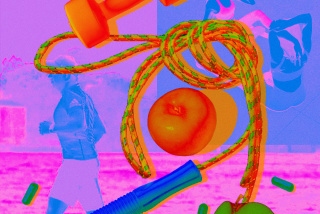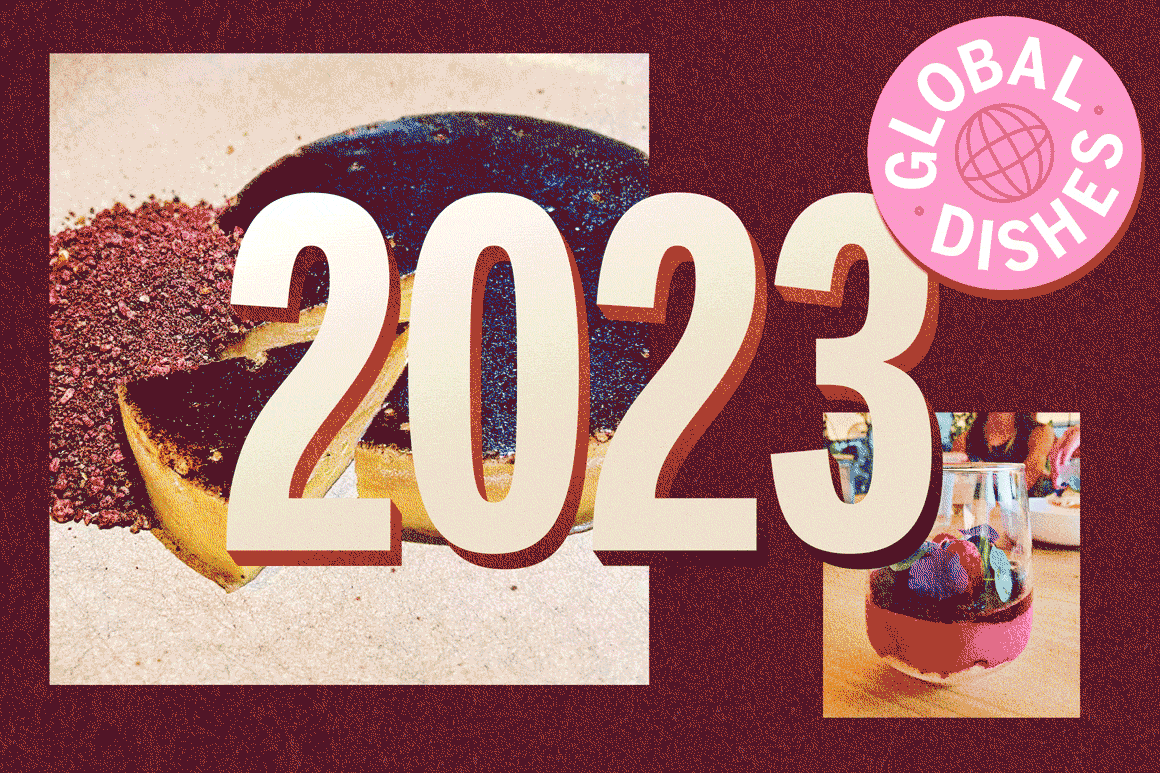A Note to Weight-Watching Travelers: âVisitâ the Food, but Donât Wallow in It
In India several years ago, I lost 10 pounds in three weeks. But that was an aberration, because for me, travel is usually fattening. Every trip I take to France or Italy seems to add inches to my thighs and waist. I even managed to gain weight in China, where I avoided fish eyes and dog meat by subsisting largely on dumplings and beer.
Actually, Iâd rather eat fish eyes than think about dieting on the road. But itâs a problem frequent travelers must face, especially if they happen to be hyper-conscious of their weight.
Savvy women who travel constantly for business learn how to order wisely at big expense-account dinners and maintain their exercise programs on the road. Some, like Cary Broussard, an executive with Delta Airlines, actually view business travel as a chance to eat more healthily than they do during their busy lives at home. Others, like Mary Wallace, executive vice president of an educational software company in San Diego, have to work harder to stay fit and trim. Wallace, who travels at least three weeks of every month, tries to eat something healthy three times a day, and works out by carrying her own luggage and walking to meetings whenever she can.
Itâs pleasure travel that turns some of us into blimps with suitcases, because, after all, weâre on vacation. We feel weâve earned croissants in Paris and Alfredo sauce in Rome. Moreover, food is an intrinsic part of the travel adventure, an earthy and immediate entree into a foreign culture. Still, Sharon Wingler, who has traveled the world as a flight attendant for the last 30 years and is the author âTravel Alone and Love Itâ (Chicago Spectrum Press, $14.95), has never gained a pound on vacation though she enjoys three-course lunches and dinners in culinary meccas like Italy and France. She says this is because the portions in Europe are so much smaller than they are in the U.S.
I noticed the same thing on a trip to Rome in August, where one of my most memorable meals started with an antipasto salad, followed by four little gnocchi covered in cream sauce and a ripe pear for dessert. This modest lunch satisfied me completely and kept me going until my afternoon gelato. The ice cream would have made me tip the scales except for the fact that I walked five to 10 miles a day, from the Spanish Steps to the Vatican.
For those of us who tend to take a vacation from careful eating habits and regular exercise routines when weâre away, walking is the best fat-fighter of all, not to mention a delightful way to take in the sights. Carol Rivendell, co-owner of Wild Women Adventures, a Northern California-based tour company for women, walks to Notre Dame cathedral for sunrise on her first morning in Paris, no matter how jet-lagged and slothful she feels. It charges her up, she says, and justifies butter with her breakfast baguette.
In Italy or France youâd be silly to avoid pastry, cheese and rich sauces, Rivendell believes. But you ought to view the eating experience as âvisiting the food,â not as a chow-down. âDonât fill up,â she advises. âBut donât ask for nonfat milk in your latte.â
Rivendell also says you ought to think twice about having three big restaurant meals a day: âIn Italy, have a nice lunch, and then a slice of pizza and a glass of wine for dinner.â
Kathleen Johnson, a nutritionist at Canyon Ranch spa in Tucson, has more specific advice: âIf you avoid bread and wine at a meal, youâll save yourself 400 calories. Eat a piece of fruit before dinner to cut your appetite. And have your big meal of the day at lunch, dining lightly at dinner.â
If only I could do this! But thereâs a kind of stress in travel that can only be assuaged with high-calorie comfort foods like beer, cookies, cake, rice and bread. This is especially the case when you venture into the Third World, where the wise donât drink the water or eat fresh fruits or vegetables. Georgia Witkin, author of âThe Female Stress Syndromeâ (Newmarket Press, $14.95), says that âeverything unexpected is stressful, and when you travel everything is unexpected.â
To avoid turning to high-calorie comfort foods, Witkin carries âcomfort foods that arenât all that damaging, like animal crackers and bananas.â Then, too, she advises, there are stress-combative goodies that donât have any calories at all: a new lipstick, a crossword puzzle book for the plane ride and a bubble bath upon arrival.
Evelyn Hannon, the editor of Journeywoman.com, a Canada-based Internet travel newsletter for women (https://www.journeywoman.com), says that in Third World countries she carries trail mix, raisins and almonds, which are fattening but at least good for you. She also packs chicken soup packets for when she gets ravenous in her hotel room at night, and has been known to seek out hospital cafeterias, where the food is not only healthy but cheap.
In âThe Fearless Dinerâ (Travelersâ Tales, $7.95), author Richard Stirling suggests fasting when the food in the country youâre visiting seems suspect. âIt wonât hurt you to go hungry for a day, or two, or even three,â he says. âJust remember to stay hydrated and take your vitamins.â
Drinking at least eight glasses of water a day does help cut my appetite, but it isnât easy to do on the road. Lord knows how many times youâll need to visit the ladiesâ room, which can be unpleasant in out-of-the-way places and tiresome on long airplane rides.
Youâll also stay ahead of the weight maintenance game if you scrape the sauces off the entrees on airplane dinners. Better yet, call ahead and order a low-fat meal or fruit plate. Generally these are fresher than the regular chicken or meat entree choices, and a lot less fattening. Also, donât eat the peanuts or drink alcohol.
In other words, donât enjoy yourself and youâll stay slim.
On second thought, if keeping trim is your primary concern, maybe you ought to stay home.
More to Read
Sign up for The Wild
Weâll help you find the best places to hike, bike and run, as well as the perfect silent spots for meditation and yoga.
You may occasionally receive promotional content from the Los Angeles Times.






